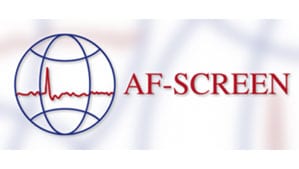Findings from virtual workshops led by the National Heart, Lung, and Blood Institute (NHLBI) have been published in Circulation Journal. Boston University School of Medicine’s Emelia Benjamin is the first author of “Research Priorities in Atrial Fibrillation Screening;” her co-authors include PHRI Senior Scientist, Jeff Healey.
Many of the research priorities identified in the whitepaper are the focus of studies in the Canadian Stroke Prevention Intervention (C-SPIN) Network, whose national coordinating office is PHRI,” says Dr. Healey, lead of C-SPIN’s Scientific Executive Committee. “In particular, we are excited about the whitepaper’s focus on the call for research on AF and dementia, risk factors, and other items.”

Jeff Healey
“For example, the BRAIN-AF study is looking at cognition; SCREEN-AF is investigating population-based AF screening; and ARTESIA is looking at the significance of treating such short episodes of AF,” says Dr. Healey.
Conclusions from the NHLBI workshops, contained in the whitepaper, include the following themes to advance the field of AF screening:
- It is essential to generate and share data across studies (enabling pooled analyses and meta-analyses) to develop a compelling evidence base.
- We need to pursue study designs including RCTs, pragmatic trials, cohorts, registries, basic/mechanistic, administrative, and health care/electronic medical records.
- Screening studies should examine AF burden, duration and pattern in relation to multiple outcomes (eg, cardiac, brain, kidney, quality of life, costs, all-cause death), and in addition to stroke and TIA.
- We should investigate AF screening in various patient subgroups (eg, age, sex, race/ethnicity, urban/rural, and comorbidities), practice settings, and countries.
- Screening will be most resource-effective if focused on individuals for whom therapy may change if AF is diagnosed.
- It is important to ensure adequate representation of ethnic and racial minorities in AF screening studies.
- We need to determine how AF prognosis and treatment vary by AF detection method (eg, incidental, non-contact/non-electrocardiographic screening, routine electrocardiographic screening, consumer devices, extended clinical electrocardiographic monitoring).
Access the PDF for the full Research Priorities in Atrial Fibrillation Screening whitepaper.




